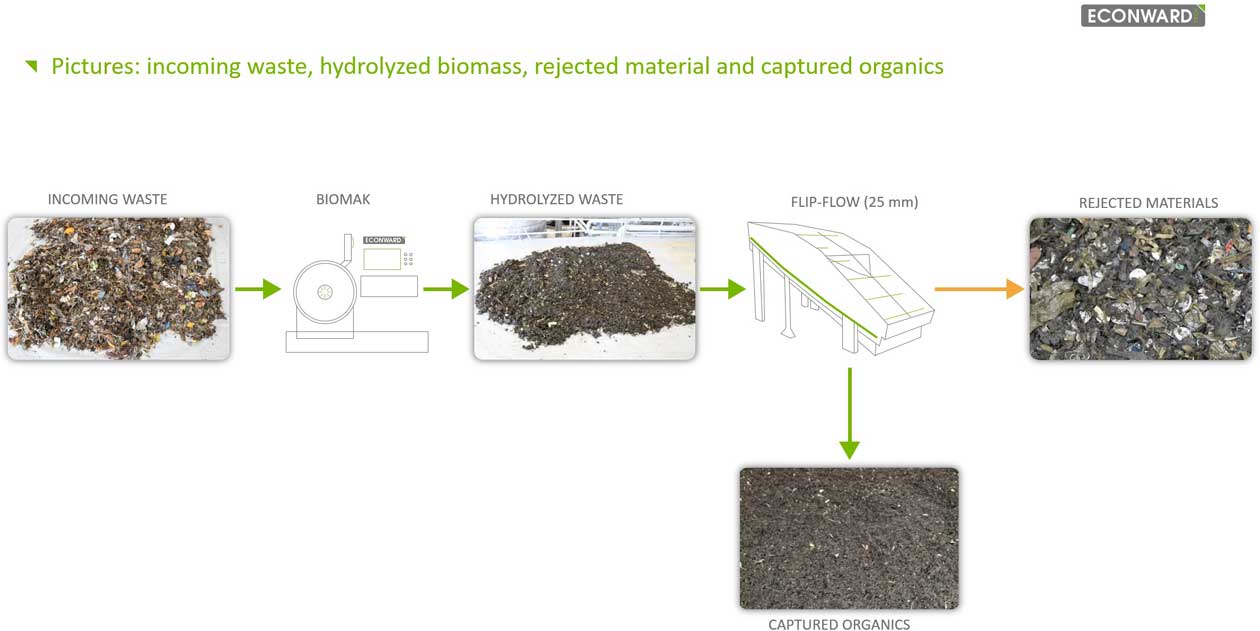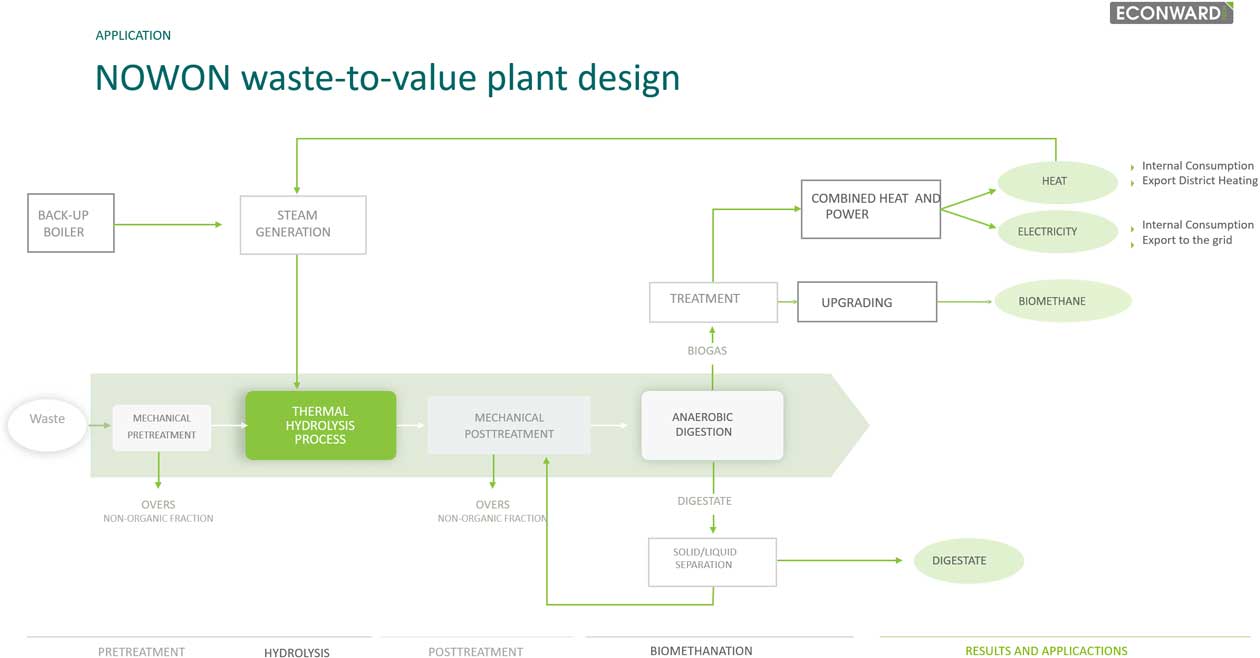Composting with Anaerobic Digestion: A new method for handling organic waste by ECONWARD.
March 22, 2023
Composting and anaerobic digestion are both methods of organic waste management that can convert organic waste into useful products. However, there are some key differences between the two processes.
Composting is a natural process of decomposition that occurs when microorganisms break down organic matter in the presence of oxygen. The resulting compost can be used as a soil amendment or fertilizer. Composting is typically done in open piles or enclosed containers and requires regular turning and monitoring to ensure that the conditions are optimal for decomposition.
Anaerobic digestion, on the other hand, is a process that occurs in the absence of oxygen. It involves the use of specialized bacteria to break down organic matter and produce biogas, which can be used for energy production. Anaerobic digestion is typically done in sealed tanks and requires careful control of temperature and pH to ensure that the bacteria can function effectively.
Composting is generally simpler and less expensive to implement, but produces lower energy yields, releases some emissions/odors, and requires more space. Anaerobic digestion is more complex and expensive, but produces useful biogas that can be used for energy production.

A novel approach for processing organic waste has emerged, which combines the benefits of both composting and anaerobic digestion. This process involves subjecting the organic material to thermal hydrolysis, which generates sufficient energy to recoup the initial investment in just four years.
Additionally, the resulting biomass is fully digested and free from harmful pathogens, making it suitable for composting downstream without any emissions/odors. This results in faster composting cycles whilst requiring less space. A win-win method combining thermal hydrolysis and standard anaerobic digestion with traditional composting.
We call it the NOWON waste to value system, an ECONWARD solution.

About the Author

Joe Ayala holds a Chemical Engineering degree with specialization in gas separation systems from the National University of Technology and a master’s degree in international business from the University of New England. He has full P&L responsibility for ECONWARD TECH LLC business in North America and believes leadership determines a team success by assuming full ownership when facing seemingly impossible challenges.







Leave a comment